 Looking for a great book to bury yourself in to escape the winter chill (or simply the demands of visiting relatives)? Fortunately, as far as tech-focused books go, 2017 was a great year.
Looking for a great book to bury yourself in to escape the winter chill (or simply the demands of visiting relatives)? Fortunately, as far as tech-focused books go, 2017 was a great year.
Here are our choices for the best of the best.
This post contains affiliate links. Cult of Mac may earn a commission when you use our links to buy items.
Best tech books of 2017
In a world of tech blogs and magazine articles that are far more timely than a book could ever hope to be, it takes something extra special for a book about high tech to stand out as a winner. Whether it’s in-depth profiles, epic narratives, or just plain beautiful images and paper quality, all of these entries have something you can’t get from a visit to your favorite technology website.
Troublemakers: Silicon Valley’s Coming of Age by Leslie Berlin
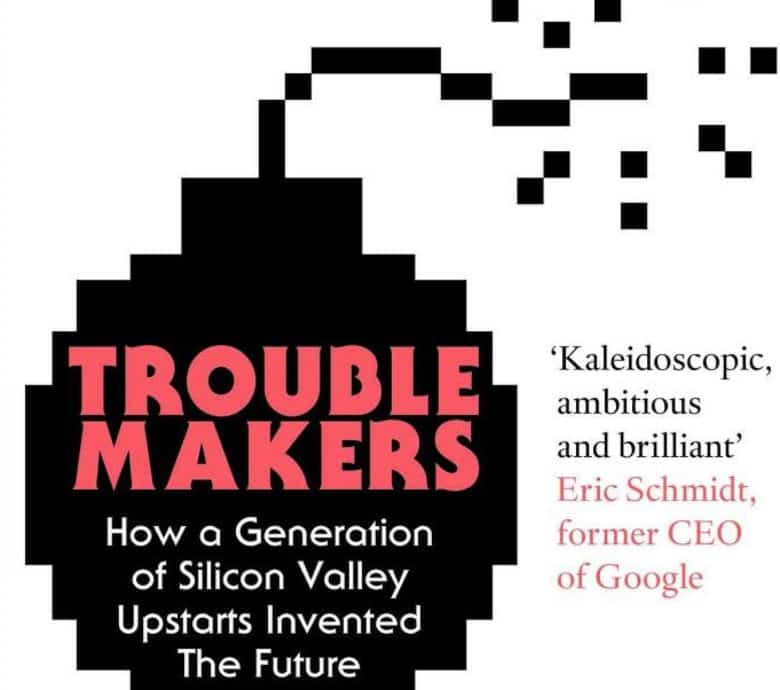
Photo: Troublemakers
The word “troublemakers” instantly summons up images of Apple’s iconic “Think Different” TV commercial, which helped celebrate the fact that Steve Jobs was back at the company he helped found.
But Stanford historian Leslie Berlin’s book Troublemakers: Silicon Valley’s Coming of Age goes beyond Jobs. It fleshes out some of the B-players (in name recognition, not achievements) without whom Silicon Valley would never have been the same.
Troublemakers chronicles a nine-year period from 1969 to 1976 when five major new industries were born: personal computing, video games, advanced semiconductor logic, modern venture capital and biotechnology.
Instead of following the usual suspects you’ve likely read about before, the book instead pursues snapshots of people like Mike Markkula, the investor who helped Jobs and Steve Wozniak create Apple, and later became the company’s second CEO; Al Alcorn, the man who designed the video game Pong, which helped launch Atari; and Bob Taylor, who played a crucial role in the development of the internet.
It’s a refreshing, sideways take on a fascinating period in Silicon Valley history. And beautifully written, to boot.
Buy it from: Amazon
Leonardo Da Vinci: The Biography by Walter Isaacson

Photo: Leonardo Da Vinci
Walter Isaacson is the writer Steve Jobs famously hand-picked to be his biographer. For his latest work, Isaacson focuses on telling the life story of Leonardo Da Vinci, the Italian Renaissance man whose interests included everything from painting, architecture and sculpture to engineering, invention and astronomy.
Leonardo Da Vinci: The Biography may not be the first thing that comes to mind when you think of tech books, but it fits well into Isaacson’s series on visionaries and polymaths (including Jobs, Albert Einstein and Benjamin Franklin). Isaacson’s book is at its best when it focuses on Da Vinci’s inventions, and the man’s various strengths and weaknesses as a human being.
Isaacson also makes efforts to extrapolate lessons from Da Vinci’s life that can be applied to modern entrepreneurs and creatives. A hefty book, but an excellent one.
Buy it from: Amazon
The Four: The Hidden DNA of Amazon, Apple, Facebook, and Google by Scott Galloway
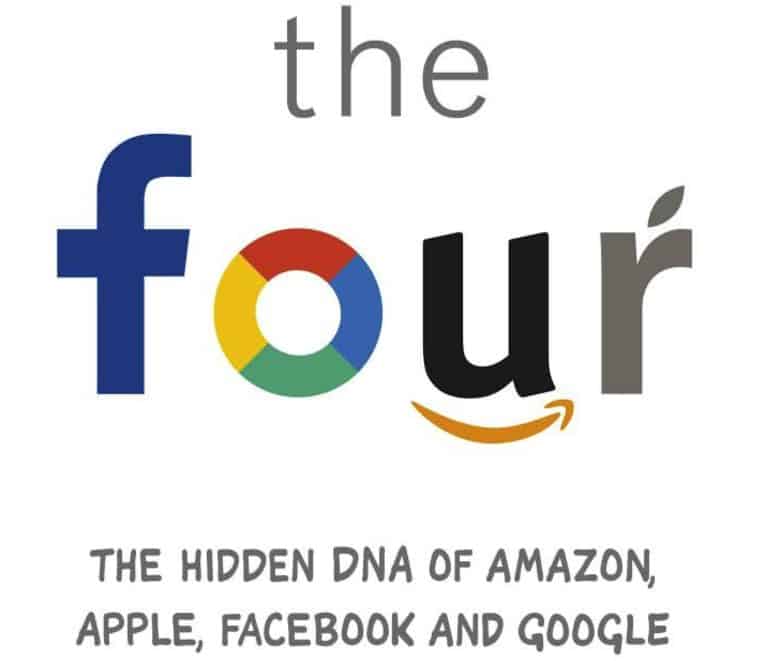
Photo: The Four
We live in a world of platforms, and four of the biggest companies working in this area are Amazon, Facebook, Google and Apple. This book by NYU Stern marketing professor Scott Galloway forensically examines each company’s approach, strengths, weaknesses and challenges.
The Four: The Hidden DNA of Amazon, Apple, Facebook, and Google is packed full of unique insights. The book asks all the right questions concerning a world in which four tech giants are gaining once-unimaginable levels of power.
Buy it from: Amazon
Twitter and Tear Gas: The Power and Fragility of Networked Protest by Zeynep Tufekci
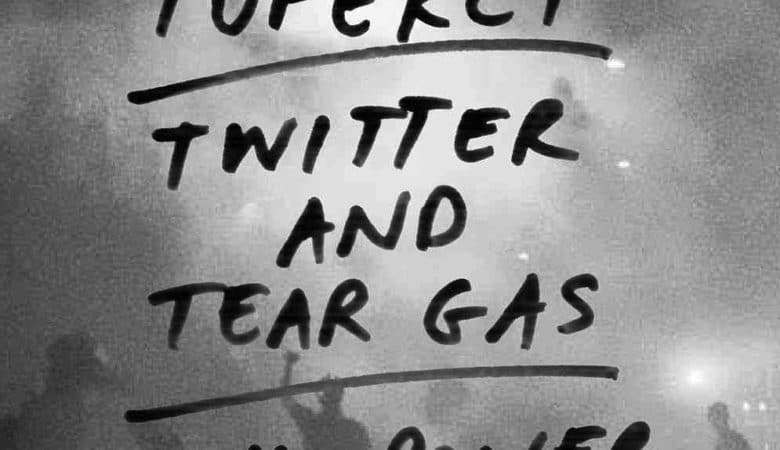
Photo: Twitter and Tear Gas
Has the online world given individuals more power than ever to protest, or has it reduced protest to ineffectual “slacktivism”? Zeynep Tufekci’s Twitter and Tear Gas: The Power and Fragility of Networked Protest explores that question, with plenty of on-the-ground reportage from her involvement in protests such as the 2013 Gezi Park protests in Turkey.
At a time when technology is being employed more and more by people on both sides of each political debate (the book twice quotes Melvin Kranzberg’s famous assertion that “technology is neither good nor bad; nor is it neutral”), Twitter and Tear Gas is an incredibly timely arrival.
Buy it from: Amazon
Designed by Apple in California by Apple’s Industrial Design team
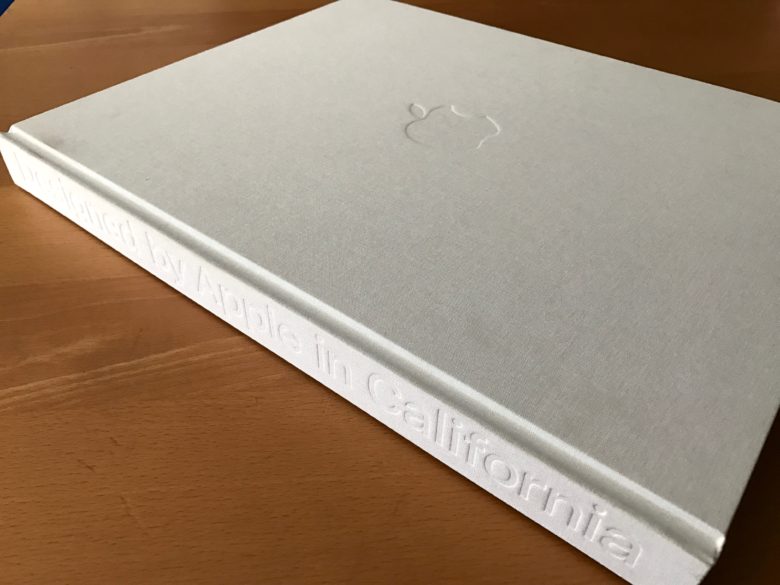
Photo: Leander Kahney/Cult of Mac
I’m kind of cheating with this entry. Designed by Apple in California actually came out in November 2016. But I didn’t get get my hands on a copy until this year.
Unlike all the other books on this list, Designed by Apple in California is short on words. Instead, it’s a coffee table book stocked with 450 photos of Apple products. (It comes in two sizes: $199 for the smaller version and $299 for the bigger one.)
There’s next to nothing about the way that Apple makes its products. However, the book serves as a beautiful, high-quality catalog of pretty much everything the company built after Steve Jobs returned in the late 1990s, as well as the tools used to create them.
Buy it from: Apple
iGen by Jean Twenge
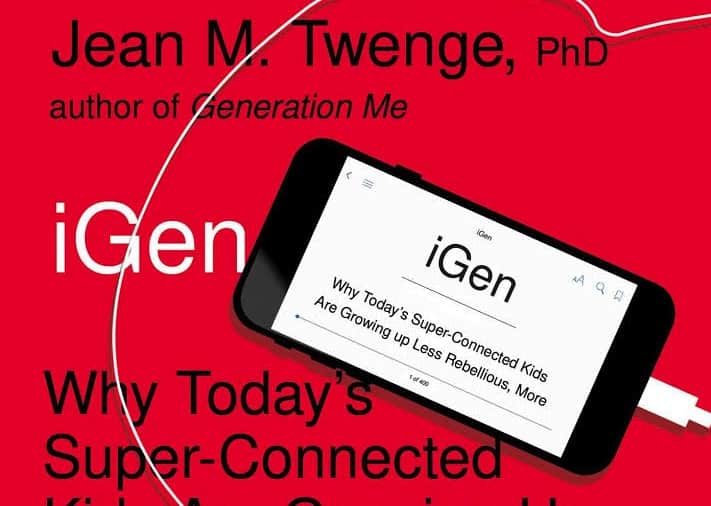
Photo: iGen
There’s something kind of ironic about the fact that iGen — the post-millenial generation named after the Apple branding that promised to make us all into rebels and misfits — would turn out to be the least rebellious generation in years.
At least, that’s the thesis of psychologist Jean Twenge’s new book, iGen: Why Today’s Super-Connected Kids Are Growing Up Less Rebellious, More Tolerant, Less Happy and Completely Unprepared for Adulthood, and What That Means for the Rest of Us. It examines the effects of technology on a generation of people who have never been without their smartphones and other connected devices. It’s not all doom-mongering (isn’t it a good thing that today’s kids are more tolerant?), but there’s definitely cause for concern.
Twenge explores ground similar to that of tech-focused psychologist Sherry Turtle (whose 2011 book Alone Together: Why We Expect More From Technology and Less From Each Other makes a good companion piece). It’s a fascinating topic and the author does it justice.
Buy it from: Amazon
What were your favorite tech books of 2017?
Did we miss a winner? Let us know your favorite reads of 2017 in the comments below.


